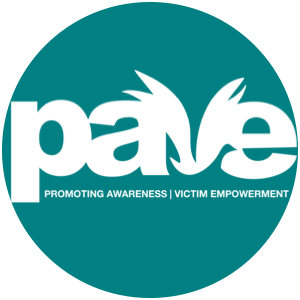What is the Red Zone?
The first months of college are meant to be an enriching, inspiring experience for college students around the country. However, amongst all of the excitement, it is incredibly important to facilitate a conversation around sexual violence on college campus, which is statistically more prominent from the beginning of the fall semester until the end of Thanksgiving break. PAVE is launching the Red Zone Campaign, a national campaign to shatter the silence around college campus sexual violence, especially during the fall semester.
This period, known as “The Red Zone,” is when 50% of all college sexual assaults are statistically found to occur. In fact, a U.S. Department of Justice study of nine colleges, found that “629 sexual assaults occurred among first-year students in September and October 2014, which was more than the assaults that occurred during the next four months combined.”
The timing of the Red Zone is not by chance; the Red Zone is in accordance with several “Back-to-School” events that happen during the fall semester. College campuses around the nation are overwhelmed with large parties during Welcome Week, an exciting time for first year students and beyond as students arrive on campus. “Rush” events for Greek organizations, both social and professional, take place during the first few months of the semester. Additionally, as clubs begin to recruit members, the number of student socials increases. All of these various celebrations can prove to be intimidating, especially to freshmen as they are not yet familiar with the campus’s resources and support systems. First-year female students, who are often teenagers without developed social networks on campus, are most in danger.
On campuses, the stigma and mistreatment of college sexual violence often worsens the situation for first years. Although Rachel Mackinnon, the Outreach Director of PAVE acknowledges that most American campuses require students to complete a sexual assault education program, she notes how, “we see a lack of complex and comprehensive education surrounding consent, sexual violence, party culture, bystander intervention, and sex education. Typically universities are accomplishing this through one educational session during orientation. To change campus culture, we need to have continuing education and dialogue occuring on campus.” More often than not, these educational programs tie in bystander intervention training, however, most do not go into depth and can leave first years even more confused on how to safely and effectively intervene if they see something. The lack of effective and continuous sexual assault awareness programs on college campuses augments the confusion and anxiety first year studnets may feel as they experience the uncertainty of being a new collegiate. To make matters worse, college officials and residential assistants often focus on warning students about the dangers of alcohol abuse and partying too much. This rhetoric creates a environment rooted in toxic rape culture, as it assigns unfair liability on a survivor to prevent their sexual assault.
While this all may seem daunting, especially for freshmen at universities, learning about what the Red Zone is can be an empowering way to keep yourself and your new friends informed as you begin to explore campus life. The first few weeks on campus can be an excellent time to learn more about yourself, especially what you want and need out of interactions with others. Students deserve to feel safe during this exciting new chapter, and having an honest conversation with yourself as well as the people around you regarding consent, supporting your peers, sex, and campus resources can provide an empowering platform of self-awareness during your new adventure. Additionally, identify resources on campus for mental health, physical health, and sexual assault care, and circulate them amongst your friends and social media as much as you feel comfortable doing so. Most importantly, during the Red Zone as well as after, be gentle with yourself and your peers.
College is meant to be an enriching experience which builds your confidence, but it can be scary too! Treat yourself with kindness and respect, and ensure that you treat others the same. And make sure to always believe, listen to, and support survivors if they disclose to you!
